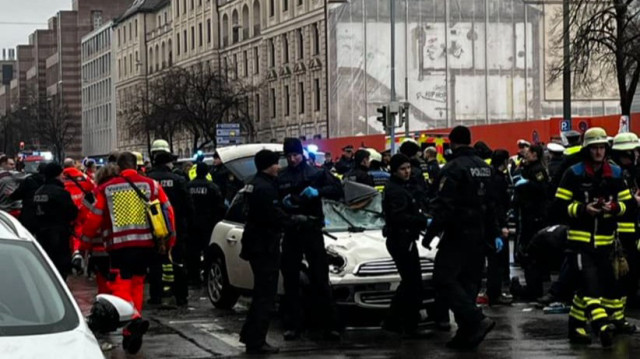Fragile Ceasefire Hinges on Hostage Exchange
The ceasefire agreement in Gaza stands on precarious ground as both Hamas and Israel face mounting pressure to fulfill their obligations in a controversial hostage exchange.
Published February 15, 2025 - 00:02am

Image recovered from lavoz.com.ar
In the tense landscape of the Gaza Strip, an ongoing ceasefire faces relentless challenges, with the fate of hostages at its epicenter. On the brink of collapse this week, the agreement initially facilitated by Egypt and Qatar, backed by the United States, remains under threat due to accusations from both sides.
Hamas recently disclosed the identities of three Israeli hostages set for release in an exchange for Palestinian prisoners. These hostages—Israeli-Argentine Yair Horn, Israeli-American Sagui Dekel Chen, and Israeli-Russian Alexander Troufanov—were captured during the Hamas-led attack on Israel on October 7, 2023.
This planned exchange, marking the sixth since the ceasefire commenced on January 19, requires Israel to release over 300 Palestinian prisoners. Thus far, 21 hostages and over 730 prisoners have been freed. However, the delicate balance of peace hangs by a thread, strained by allegations from Hamas accusing Israel of delaying humanitarian aid efforts, while Israel has warned of resuming military actions if hostages are not returned.
Hamas expressed readiness to adhere to the prisoner exchange schedule, as reiterated by Hamas leader Khalil Al-Hayya during discussions with Egyptian officials in Cairo. Despite accusations from Israeli leadership, including Prime Minister Benjamin Netanyahu, against Hamas for obstructing the peace process, diplomatic efforts persist with mediators from Egypt and Qatar striving to resolve these tensions.
A stark warning was issued by President Donald Trump, who insisted the hostages be released promptly, threatening severe repercussions otherwise. This rhetoric echoed Israel's warning to escalate military operations should the deadline pass without the hostages' release.
This week has seen emotional appeals from freed hostages, highlighting the severe conditions faced in captivity. Keith Siegel, a former hostage, described his harrowing experience and has urged continued international pressure to ensure the safe return of all captives.
Amidst the backdrop of this fragile ceasefire, the humanitarian crisis in Gaza continues. The bottleneck in aid deliveries has drawn criticism and intensified discussions around the ceasefire terms. In response, the Israeli authorities and international organizations are attempting to resolve logistical issues to better facilitate aid delivery.
Hamas's announcement of postponing further hostage releases adds to the tenuousness, citing unmet humanitarian aid requirements by Israel. The humanitarian needs in Gaza are vast, and efforts by international aid organizations continue to meet these demands.
The precarious state of affairs in Gaza not only affects the immediate stakeholders but also poses a potential threat to regional stability, with neighboring countries waiting to see the outcome of these negotiations. The commitment to maintaining the ceasefire and securing the release of hostages now sits as a critical juncture for all involved, as the international community watches closely.





